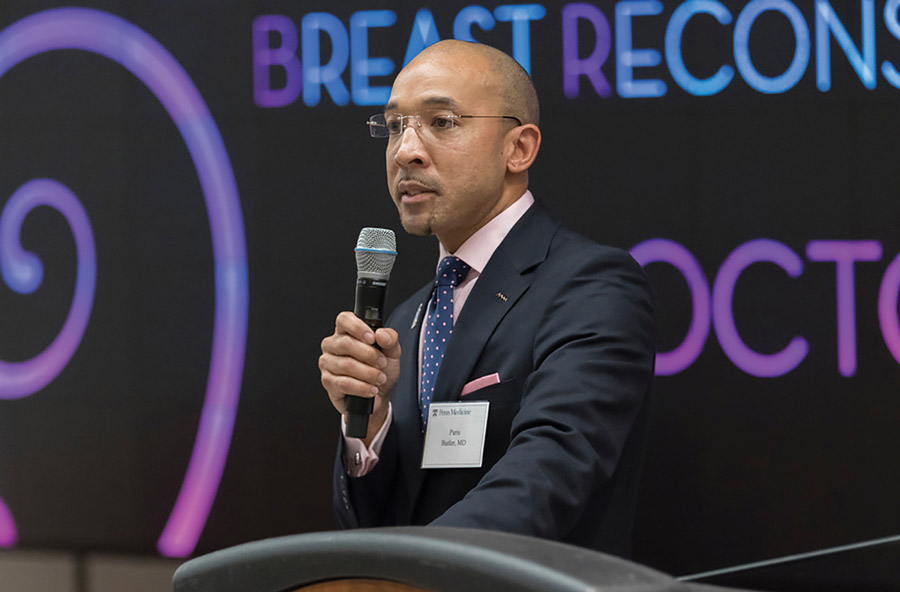Challenges still exist in providing equitable access to health care for all people. This has been evident during the pandemic, which has disproportionately impacted people of color, particularly African Americans and Latinos. Healthcare systems are key anchors of local communities and have the platforms to push for a more equitable society. By following these action steps, your facility can help drive the change that's needed throughout the nation.
- Recognize the need. Conduct self-assessments of your own space instead of always looking outward at society. It's important to support national efforts and movements, but it's equally important to assess how all patients, staff and surgeons feel when they walk through your facility's doors. Are you doing all you can to make them feel welcome and recognized, regardless of their skin color? Is inequality present in your daily practices, even if it isn't overt? The challenges we've faced as a nation over the past year have made these conversations easier to have.
- Empower employees. A single diversity officer should not be given the sole responsibility of carrying out DEI efforts for a large facility or health system. That's how it was done in the past, but the model did not move the needle far enough or fast enough. If we're going to make meaningful change happen, the effort in individual facilities has to be widespread and coordinated.
In many institutions, DEI officers are viewed as running tagalong programs and asked to chime in intermittently about the organization's efforts, which aren't woven into the fabric of the day-to-day. DEI representatives should be present in every department throughout a health system to prioritize equality programs and make them an integral part of daily activities.
Efforts need to be championed and furthered by a group of frontline workers who are determined to make positive change happen, and who have DEI goals listed among their regular responsibilities. A network of dedicated individuals, regardless of their titles and leadership status, helps drive entire staffs toward a more equitable workplace culture.
- Initiate education. Make annual or bi-annual DEI training mandatory for all staff members and physicians to raise awareness of anti-racism programs, and to emphasize the importance of confronting and disrupting long-accepted norms that promote structural racism.
Many people aren't equipped with the nomenclature needed to express exactly how they feel when discussing sensitive topics related to race, and are afraid to make mistakes. Progress demands open communication and connectedness, so create forums — regular meetings or town halls — where staff can gather in safe spaces to have open dialogues with open minds. I moderate conversations with surgical residents of all races and begin each session by declaring "take-backs" are allowed.
It's important to respect each other's opinions if the thoughts expressed are well-intentioned or made to help others learn about the issues involved. Mutual respect makes for more productive conversations.
Mutual respect makes for more productive conversations.
Consider programming that focuses on a specific topic, such as studies or articles about implicit bias, ways to promote a culture of anti-racism or how to be an upstander. These are powerful tools that yield quality discussions.
- Reevaluate policies. Many practices engrained in our society and workplaces favor staff members and patients from the majority at the expense of those in the minority. Practices that promote disparity, regardless of their level of intention, must be recognized and addressed. Healthcare leaders who develop and implement concrete plans to diversify their staffs increase access to care for all patients, and promote a more equitable and healthy society.
- Quantify progress. True change can't happen without measurable results and accountability. Create clear metrics of success in your DEI efforts, and make sure they're assessed on a consistent basis. Conduct 360-degree evaluations of your facility's DEI efforts on an annual basis. Ask patients, frontline staff, members of the medical team and departmental leaders about progress being made and areas of needed improvement. Surveys are effective tools for this purpose. For example, you can ask patients about how welcoming the staff members were who greeted them as soon as they entered the facility. I tell frontline staff that patients see them before they see me, and that they have as much of an impact on their overall experience as I do.
.svg?sfvrsn=be606e78_3)

.svg?sfvrsn=56b2f850_5)